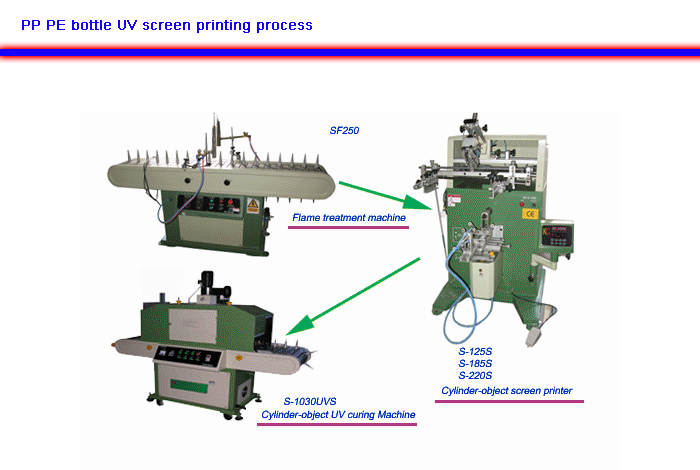Use of natural gas (natural gas or liquefied petroleum gas) and to help with the help of a certain shape of flame thrower mixed combustion of high temperature flame to PP PE surface oxidation treatment, can greatly improve the surface tension of the plastic material, improve the printing ink adhesion molecules, prevent ink from falling out, flame treatment is polar plastic containers for surface treatment technology of printing quality stability is the most effective. It can be made into a flame processor independently, and it can also install the automatic Screen Printing Machine to form the production line.
Flame Treatment Machine,Flat Flame Treatment Machine,Flame Surface Treatment Machine,Round-Object Flame Treatment Machine KC Printing Machine (Group) Limited , https://www.kcautopm.com
It is understood that each of the three Japanese car companies has its own independent procurement system: Toyota's parts procurement adopts a vertical system, Toyota Motor Corporation adopts a shareholding form for its suppliers, and Honda and Nissan introduce major products when the vehicle is put into operation. Cooperative suppliers. Before entering into China, Toyota Motor Corporation first allocated some of its own equity-participating companies to the domestic market, thereby forming a full-time supply. Honda and Nissan started to enter Chinese production models. Although they introduced cooperative suppliers, most of these suppliers belong to the “institutional†partners of the two companies. Because they are all full-time suppliers, it is difficult for foreign companies to enter the procurement system of Japanese automakers. This also shows that although the two sides use a peer-to-peer joint venture relationship, Chinese companies have little or no say in the procurement of parts and components. The right to purchase parts and components is completely controlled by the Japanese side. It is noteworthy that after the earthquake in Japan, major domestic Japanese joint ventures have claimed that the Japanese earthquake will not affect its production, but the actual situation is the opposite. 
Affected by the earthquake, in April, the supply of Japanese brand cars sold in the Chinese auto parts market decreased. The reporter learned from the relevant distributors of Toyota, Honda, and Nissan brands in the country that at present, most dealerships have almost no stock car sales. Due to the shortage of vehicles caused by car manufacturers' production cuts, Japanese car prices have also changed: Japanese brand dealers, including Beijing, have started to increase prices soon after the earthquake. Some distributors in other places even do not accept orders from customers. Case. The earthquake caused the above-mentioned Japanese automakers' production in the domestic joint venture to be hindered; the main reason for this problem was the interruption of spare parts supply. From the April automobile production and sales data announced by the China National Automobile Association, the average output of Toyota, Honda, and Nissan’s joint ventures in China fell by 30% in April; Guangzhou’s Honda production fell the most, at 43.3%. In addition, production of Honda’s wholly owned vehicle manufacturing company in China fell by 45.26% in April. It can be seen that domestic Japanese joint ventures that are in urgent need of these parts and components are completely in the state of waiting for the pot. Production and sales volume is inevitable, reflecting the seriousness of Japanese companies relying on joint venture brands to rely on Japanese parts systems.